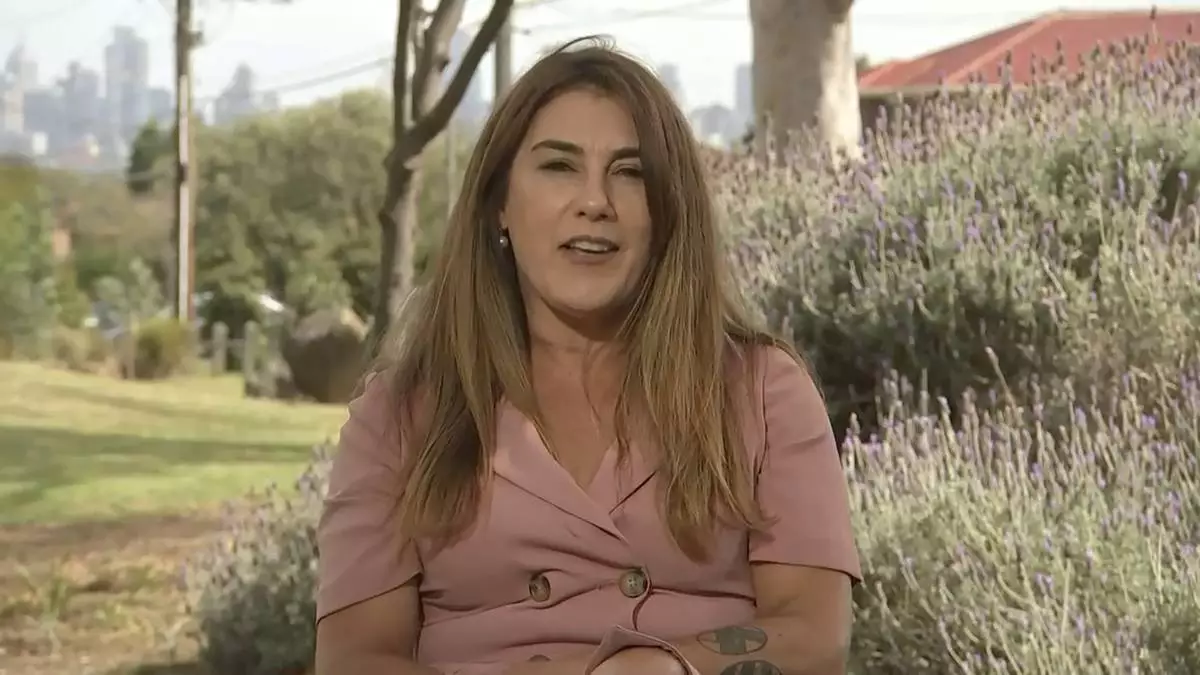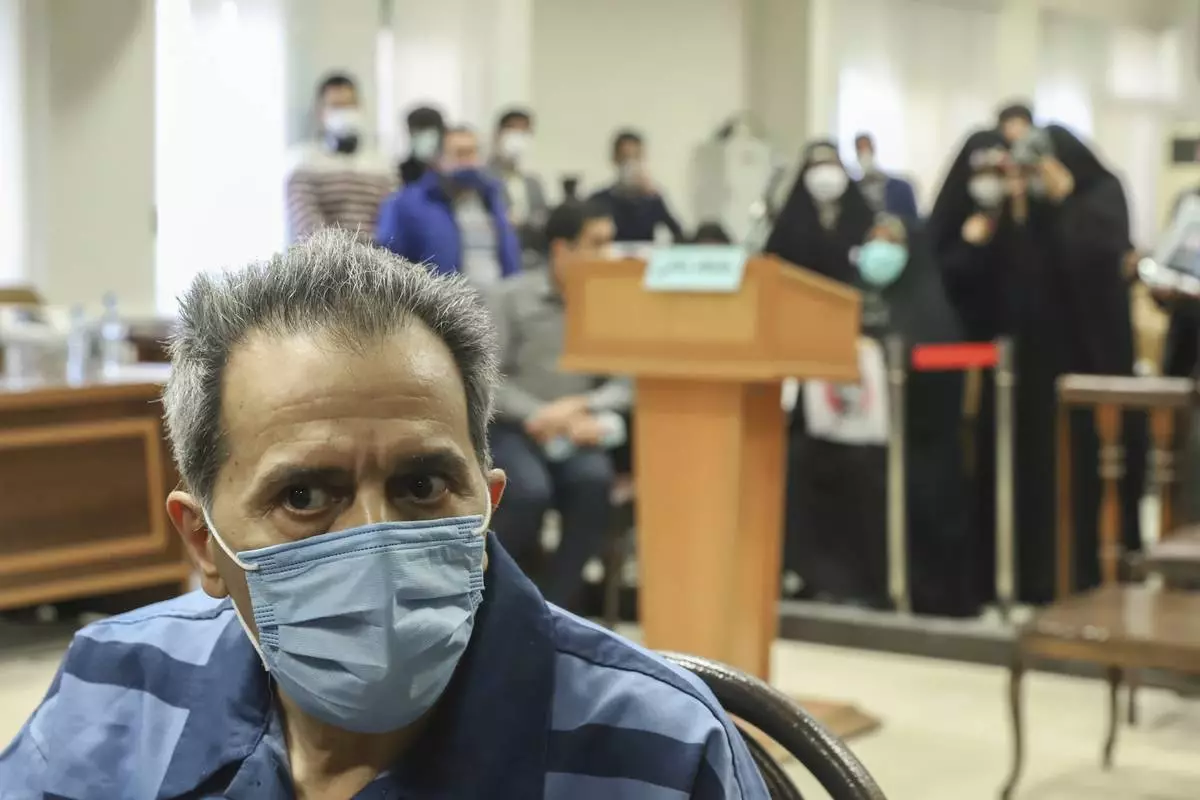MELBOURNE, Australia (AP) — A woman appeared in an Australian court on Monday charged with a May assault on the Indigenous senator who shouted at King Charles III during a royal reception last week.
The assault allegedly occurred on May 25, when independent Sen. Lidia Thorpe attended an Australian Rules Football match in her hometown of Melbourne.
Ebony Bell, 28, appeared by a video link in Melbourne Magistrates’ Court. She has been charged with two counts of recklessly causing injury and three counts of unlawful assault at a stadium.
A police statement described the 51-year-old senator’s injuries from the alleged assault as “minor.”
But she said in a statement to the AP on Monday she had “sustained serious nerve and spinal injuries in my neck, which required spinal surgery and a plate to be inserted.”
The assault was reported to police the next day and Bell was arrested on July 25. The women knew each other, but the motive for the alleged attack was not explained in court.
Bell’s lawyer Manny Nicolosi told Magistrate Belinda Franjic the prosecution case had “real deficiencies.” He said the prosecution had on Friday made an “offer,” an apparent reference to a plea deal.
“I haven’t had enough time to really consider it,” Nicolosi told the court.
Nicolosi explained that his Indigenous client hadn’t appeared in court in person because of “recent threats.” The lawyer did not elaborate on those threats.
Bell remains free on bail until she appears in court next on Nov. 22. The magistrate agreed to allow her to appear again by video.
Thorpe made her first public statement about the alleged assault after she launched an expletive-laden rant at Charles during a reception in Australian Parliament House in Canberra last week.
“You are not our king. You are not sovereign,” Thorpe yelled at Charles as she was led by security guards from the reception.
“You committed genocide against our people. Give us our land back. Give us what you stole from us: our bones, our skulls, our babies, our people,” she added.
The main opposition party has called for Thorpe to resign from the Senate due to her attitude toward Charles, who is Australia’s head of state, and have requested legal advice.
Thorpe is renowned for high-profile protest action. When she was affirmed as a senator in 2022, she wasn’t allowed to describe the then-monarch as “the colonizing Her Majesty Queen Elizabeth II.” She briefly blocked a police float in Sydney’s Gay and Lesbian Madri Gras last year by lying on the street in front of it. Last year, she was also banned for life from a Melbourne strip club after video emerged of her shouting abuse at male patrons.
She revealed her injuries after The Australian newspaper reported she had missed 16 of the Senate's 44 sitting days this year.
“I was ordered by the doctor not to travel and could not attend parliament after I sustained the injury and during recovery from surgery. My doctor told me to take time off work,” her statement said.
“I would have preferred to keep this matter private and I will not be commenting on it further at this stage,” she added.
Thorpe was widely criticized for being disrespectful to the monarch during her outburst last week.
She faces a further backlash next week when senators sit for the first time since the royal visit.
Her office said Monday she has not decided whether she plans to attend senate committee meetings in person or remotely.
She also raised questions about the validity of her appointment to the Senate when she recently said she had deliberately affirmed her allegiance to Queen Elizabeth II and her “hairs,” rather than “heirs,” during her affirmation ceremony in 2022 to exclude Charles. Thorpe later walked back that statement, saying the mispronunciation was accidental.
Lawyers agree that a mispronunciation did not invalidate an affirmation and that Thorpe also signed a written version of the affirmation of allegiance with the correct wording.
Sydney University constitutional lawyer Anne Twomey said the Senate's ability to discipline Thorpe was limited because her outburst occurred outside the chamber in Parliament's Great Hall.

In this image made from video, Australian Indigenous Senator Lidia Thorpe speaks in a television interview with the Australian Broadcasting Corporation, in Melbourne, Australia, Wednesday, Oct. 23, 2024.(Australian Broadcasting Corporation via AP)

Australian Senator Lidia Thorpe, center, disrupts proceedings as Britain's King Charles III and Queen Camilla attend a Parliamentary reception hosted by Australian Prime Minister Anthony Albanese and partner Jodie Jaydon at Parliament House in Canberra, Australia, Monday, Oct. 21, 2024. (Lukas Coch/Pool Photo via AP)
DUBAI, United Arab Emirates (AP) — Iranian-German prisoner Jamshid Sharmahd, who was kidnapped in Dubai in 2020 by Iranian security forces, has been executed in Iran after being convicted on terror charges disputed by his family, the country's judiciary reported Monday.
Sharmahd, 69, was one of several Iranian dissidents abroad in recent years either tricked or kidnapped back to Iran as Tehran began lashing out after the collapse of its 2015 nuclear deal with world powers.
Sharmahd's execution comes just two days after Israel launched a retaliatory strike against Iran amid the ongoing Mideast wars. While not directly linking his execution to the attack, the judiciary accused him of being “under orders from masters in Western intelligence agencies, the United States and the child-killing Zionist regime” when allegedly carrying out attacks in Iran.
The judiciary's Mizan news agency reported his execution took place Monday morning, without offering details. Iran, one of the world's top executioners, typically hangs condemned prisoners before sunrise.
Iran accused Sharmahd, who lived in Glendora, California, of planning a 2008 attack on a mosque that killed 14 people — including five women and a child — and wounded over 200 others, as well as plotting other assaults through the little-known Kingdom Assembly of Iran and its Tondar militant wing.
Iran also accused Sharmahd of “disclosing classified information” on missile sites of Iran's paramilitary Revolutionary Guard during a television program in 2017.
“Without a doubt, the divine promise regarding the supporters of terrorism will be fulfilled, and this is a definite promise,” the judiciary said in announcing his execution. Sharmahd was sentenced to death in 2023.
His family disputed the allegations and had worked for years to see him freed. They could not be immediately reached for comment.
Masih Alinejad, an Iranian-American activist who U.S. prosecutors say Iran has tried to kill in the U.S., praised Sharmahd's daughter Gazelle's activism for her father.
She “stood up against the Islamic Republic’s tyranny, against the U.S. and Germany’s appeasement, against the silence and indifference of the world.” Alinejad wrote on the social platform X.
“The Islamic Republic understands no language of peace or diplomacy," Alinejad continued. “Their language is that of hostage-taking, execution, assassination and murder.”
Germany expelled two Iranian diplomats in 2023 over Sharmahd's death sentence. The U.S. State Department has referred to Iran's treatment of Sharmahd as “reprehensible” and described him as facing a “sham trial.”
The German government and the U.S. State Department did not immediately respond to a request for comment Monday.
Amnesty International said the proceedings against Sharmahd had been a “grossly unfair trial” because he had been denied access to an independent lawyer and “the right to defend himself.”
“The government-appointed lawyer said that without payment of $250,000 from the family, he would not defend Jamshid Sharmahd in court and would only 'sit there,'” Amnesty said in one report on his case.
However, Amnesty noted that Sharmahd ran a website for the Kingdom Assembly of Iran and its Tondar militant wing that included claims of "responsibility for explosions inside Iran,” though he repeatedly denied being involved in the attacks.
Sharmahd had been targeted by Iran prior to his kidnapping. A 2010 U.S. diplomatic cable released by WikiLeaks identified Sharmahd as having been targeted by Iran in California, with an operative trying to hire a hitman to kill him.
“It marks a clear escalation in the regime’s attempts to intimidate critics outside its borders, and could have a chilling effect on journalists, academics and others in the West who until recently felt little physical threat from the regime,” the cable read.
Sharmahd had been in Dubai in 2020, trying to travel to India for a business deal involving his software company. He hoped to get a connecting flight despite the ongoing coronavirus pandemic disrupting global travel at the time.
Sharmahd’s family received the last message from him on July 28, 2020. It’s unclear how the abduction happened. But tracking data showed Sharmahd’s mobile phone traveled south from Dubai to the city of Al Ain on July 29, crossing the border into Oman. On July 30, tracking data showed the mobile phone traveled to the Omani port city of Sohar, where the signal stopped.
Two days later, Iran announced it had captured Sharmahd in a “complex operation.” The Intelligence Ministry published a photograph of him blindfolded. A 2022 finding by the United Nations expert found that Sharmahd's detention by Iran was “arbitrary” and asked Tehran to immediately release him.
Sharmahd is the latest dissident put to death by Iran after being brought back to the country.
In 2020, Iran executed Ruhollah Zam, an exiled journalist over his online work that helped inspire nationwide economic protests in 2017, after tricking him into traveling to Iran. In 2023, Iran executed Iranian-Swedish dual national Farajollah Cha’ab, who had been accused of masterminding a 2018 attack on a military parade that killed at least 25 people and who also had been seized abroad in Turkey.

FILE - Iranian-German national and U.S. resident Jamshid Sharmahd attends his trial at the Revolutionary Court, in Tehran, Iran, Sunday, Feb. 6, 2022. (Koosha Mahshid Falahi/Mizan News Agency via AP, File












